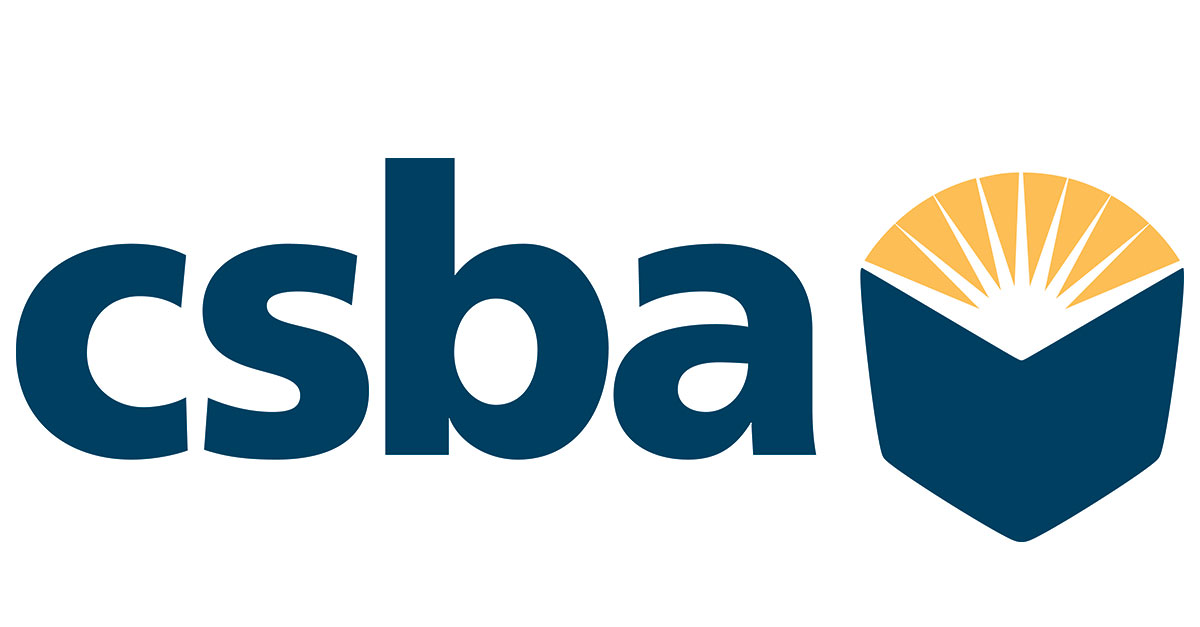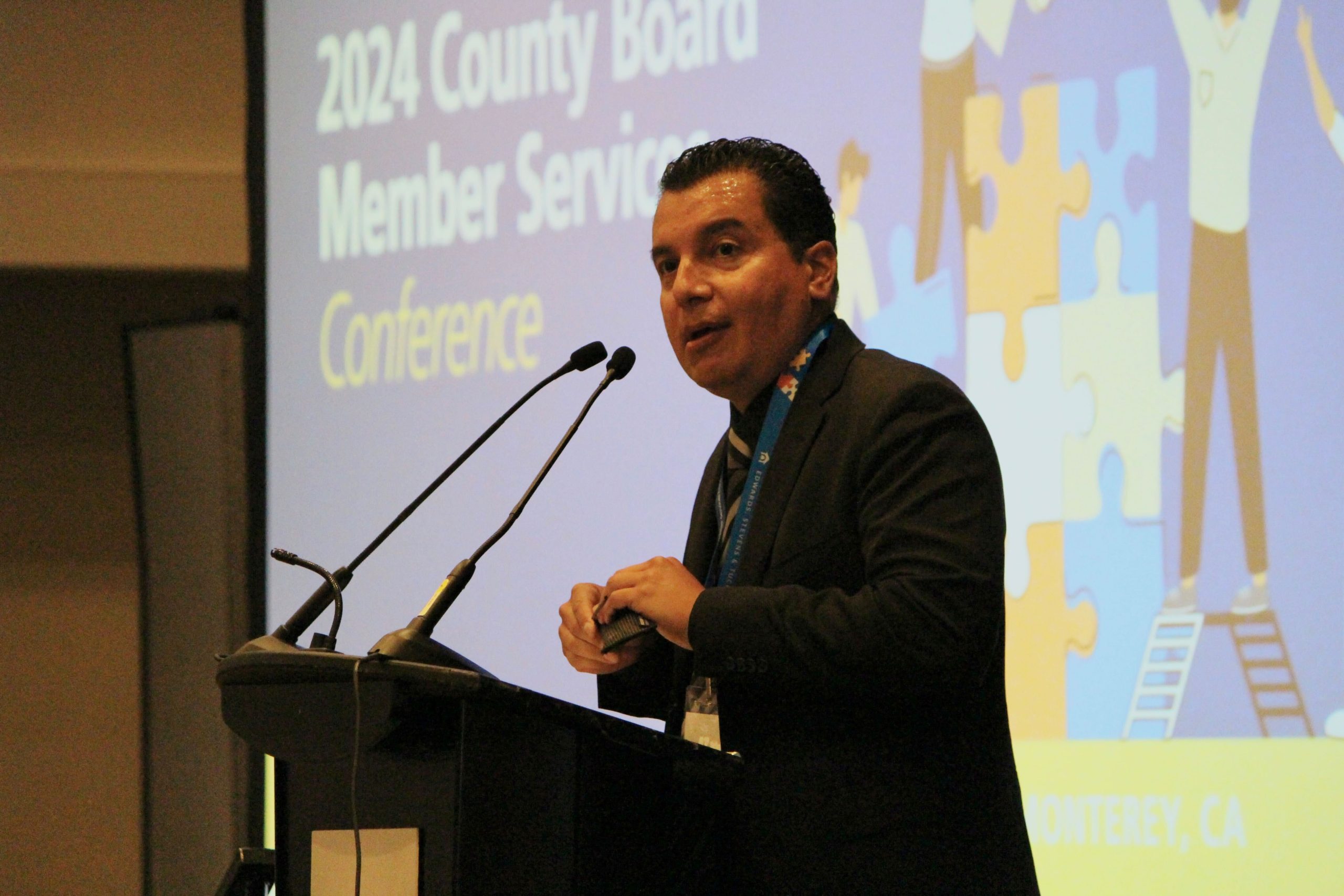Preparedness and the ability to lead through challenges was a major theme among keynote and breakout sessions at CSBA’s 2022 Leadership Institute.
Local educational agency leaders from across the state converged in Los Angeles July 22–23 to connect on topics including mental health, crisis communications, community engagement, effective board meeting management and financing an equitable education.
“At CSBA, we emphasize the importance of continuous learning for governance teams in the same way that you stress the principle of continuous improvement for your students and staff. The Leadership Institute is a forum that is perfectly suited to this concept as it provides a seminar-like environment that allows us to focus on the various aspects of one overarching theme,” said CSBA CEO & Executive Director Vernon M. Billy during opening remarks. “I know that the responsibility of leadership can seem daunting at times, but it’s never been more critical that school board members go beyond their comfort zone and lean into the challenges of the day. So, I thank you for leading by example.”
Keynote speakers
The conference’s first keynote event featured California Office of Emergency Services (Cal OES) Director Mark Ghilarducci, San Bernadino City Unified School District Chief of Police Joseph Paulino and Safety/Emergency Manager Eric Vetere discussing hazard preparedness.
An LEA’s level of familiarity with prevention strategies, preparedness to respond and actual response to a crisis can make major differences in a community. The panel examined a wide range of situations including wildfires, contentious board meetings and acts of violence on campuses.
On the topic of meetings, Paulino said that elected officials should always take threats seriously whether made in person or through virtual channels and address them accordingly. Consistency in enforcing policy is key to keeping campuses safe, he added.
“Whatever you do, make sure it becomes a habit across your collective system and everyone is adhering to it,” Paulino said. “Oftentimes there’s a failure that happens because someone didn’t follow a practice that we have.”
Additionally, Ghilarducci informed attendees that Cal OES is available to conduct school safety assessments for LEAs.
During the second keynote, “Equity in Practice, One Policy at a Time: The Power of Emotional Support in Student Lives,” Dr. Victor Rios, associate dean of Social Sciences and MacArthur Foundation Professor of Sociology at the University of California, Santa Barbara, spoke about the necessity of supporting teachers and students of all backgrounds, and ways they could do so.
Facing teacher burnout and retention issues, LEAs can connect educators to the purpose of their work. “Teachers are not going to listen to your ‘what,’ they’re going to listen to your ‘why,’” he said. “Purpose is crucial — giving your educators their why … and consistently having opportunities for them to remember their why.”
Rios recommended implementing consistent, sustainable, grow-your-own, job-embedded professional learning that builds teacher self-efficacy with focus areas like teacher well-being and cultural affirmation. He also encouraged schools to develop broader definitions of student success such as engagement, safety and having a growth mindset.
The third and final keynote featured award-winning Harvard physician, mentor and runner Dr. Natalie Stavas, who talked about her childhood, education and research, passion for running and experience saving lives at the 2013 Boston Marathon. Using these life experiences, she explained how school leaders can face challenges head-on as a strategy to make difficult situations more manageable.
“We cannot always predict or control the situations we find ourselves in, but what we can influence is how we choose to experience a situation,” Stavas said.
As the K-12 system has had to reinvent itself multiple times during the pandemic, Stavas reminded the attendees that “chaos and challenges do not have to be our enemy — rather, they can be our opportunity to find creative ways to improve.”
Attendee takeaways
District leaders appreciated the opportunity to collaborate, bond, network and learn in the intimate setting that Leadership Institute offered.
“My biggest takeaway has been the collaboration and networking with so many knowledgeable trustees,” said West Covina USD Board President Rose Lopez. “Also getting to know a lot of the speakers and their backgrounds — those are some amazing connections, too. The reason that I chose to come is to gain the knowledge to help become a better governance team member and help my team be more informed and effective.”
Anne Misicka, a board member in Wilsona School District, felt that the conference’s subject matter was particularly beneficial for smaller LEAs and observed that the smaller group sizes in breakout sessions allowed for more interaction.
William Mellinger and Jordan Zarate, both board members at Rim of the World USD, attended with fellow trustees and the LEA’s new superintendent. In addition to team bonding, it was a chance to recognize that most districts are facing the same challenges.
“CSBA conferences are always great for networking with other districts that are most often in situations similar to yours, so that’s always a big perk of coming to anything CSBA-related,” Zarate said.





